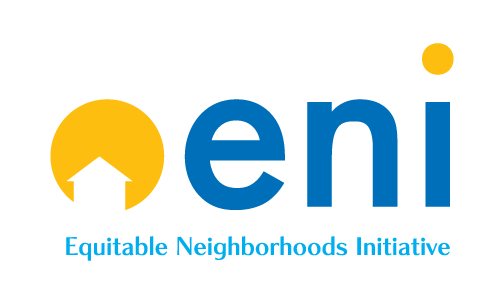October 10, 2023
– By Erica Cunningham –
World Mental Health Day is a day of reflection, awareness, and action. It is a day to recognize the importance of mental well-being and to understand the unique challenges faced by various communities. In preparation for World Mental Health Day, we had the privilege of speaking with ENI Regional Director, Mental Health First Aid instructor, and Mobile County citizen, Danny Patterson. Danny is working to make a difference in the lives of people who are struggling with their mental health.
An Alabama resident since 1987, Danny brings a wealth of experience to his community work. His journey from a corporate career with IBM to community development is a testament to his commitment to improving the lives of those in need. Since retiring in 2008, Danny has committed his time to community outreach across Alabama. His primary focus has been on the southern part of Mobile County, where he noticed a significant need for support and resources. Mental health in the Black community is especially important to Danny.
The statistics are telling. Black individuals experience mental health challenges as often as others, but only 25% seek help when they need it. Diagnosis and treatment can be a significant hurdle in the path to mental health wellness.
“You have to be diagnosed in order to receive treatment. If you don’t receive treatment, you cannot get well. It’s a domino effect,” said Danny.
Causes of Mental Health Disparities in Black Communities
When mental health challenges in the Black community go untreated, they are more frequently turning into mental health crises. Black individuals are more likely to find help in an emergency department rather than from a mental health specialist. They are not getting the help they need until it is too late.
To understand why Black communities face these challenges, we must consider the root causes. Danny points to factors that influence overall well-being. A few of these factors include economic stability, neighborhood conditions, education, social surroundings, and the healthcare system.
Chronic stress contributes to mental health issues
A person’s financial situation can play a big role. Money difficulties, increasing debt, and the inability to access healthy food can significantly increase stress levels. That chronic stress can contribute to mental health issues.
This is “a major problem that we’re having in our communities,” Danny explained. In 2022, 17% of Black individuals in the U.S. lived in poverty. Living in poverty can significantly increase one’s likelihood to report serious psychological distress. Lack of economic stability trickles into other aspects of a person’s well-being. It might impact access to healthy food, quality or lack of health insurance, and quantity and quality of providers offered in their area.
More education Surrounding Health Care Is Needed
Even if someone can seek help from a clinic or primary care provider, information from doctors can sometimes be confusing. If an individual doesn’t know what to ask or what to tell their doctor, they might not be referred to a mental health professional. This prevents diagnosis and treatment. Health literacy is how well a person can understand and use information about their health to stay well and make smart choices about their medical care. Even if someone knows they need help, health literacy differences may delay someone from getting the proper care that they need. Danny explained that “health literacy is a really big deal…we are not battling with a language issue, we are battling with the knowledge of what the language is telling us.”
Stigma surrounding mental health
Stigmas surrounding mental health in the Black community can also delay or stop individuals from seeking help. Mental health challenges are often seen as a personal weakness in Black communities. This may lead people to feel embarrassed if they struggle with their mental health. They might not want others in their community to know they are struggling, so they keep their struggles to themselves. Additionally, there is a general mistrust for medical establishments within many Black communities. This all further prevents people from seeking treatment.
Physical barriers to support
One of the most significant challenges facing Black communities is the need to leave their neighborhoods to access vital services. Resources like transportation, childcare, and health insurance make it possible for individuals to seek help outside their community. But those resources are not always accessible. In the U.S., roughly 10% of Black individuals are not covered by health insurance. A 2023 study showed that Black adults, adults with low family income, and adults with public health insurance were all more likely to skip needed health care due to difficulty finding transportation. Without these supporting factors, it may be difficult to access resources.
Building Capacity Through Mental Health First Aid
In communities where health care providers are scarce, training community members to recognize the warning signs of mental health challenges may offer support. Danny’s involvement in Mental Health First Aid (MHFA) is making a substantial impact. MHFA trains participants on mental health and substance use issues. It equips them with knowledge they can bring into their communities. Danny became an MHFA instructor about 3 years ago. He can now train others in MHFA, including participants from our ENI communities. ENI is working to get community members trained from all 20 of our partner communities.
In the video below, Dr. Jessica Hoggle, Mental Health First Aid Educator in the School of Social Work at the University of Alabama, provides an overview of MHFA. Dr. Hoggle also shares a summary of what’s covered in mental health first aid courses and how to access training opportunities.
Mental Health Matters
As we commemorate World Mental Health Day, Danny Patterson leaves us with a powerful message: “Don’t hesitate to seek help.” If you notice changes in the behavior of your loved ones, friends, or community members, talk with them. Help them find the resources they need. The national 988 hotline can connect individuals to local help. Additionally, apps like Connect Alabama provide access to nearby resources.
On World Mental Health Day, let us reflect on the challenges faced by Black communities in Alabama and across the nation. Let us recognize the importance of addressing mental health disparities and breaking down the stigmas that prevent individuals from seeking help. Through individuals like Danny Patterson and initiatives like MHFA, we can make progress and ensure that everyone has access to the mental health support they deserve.


